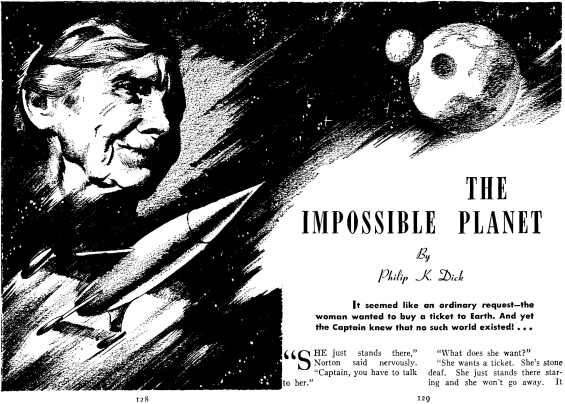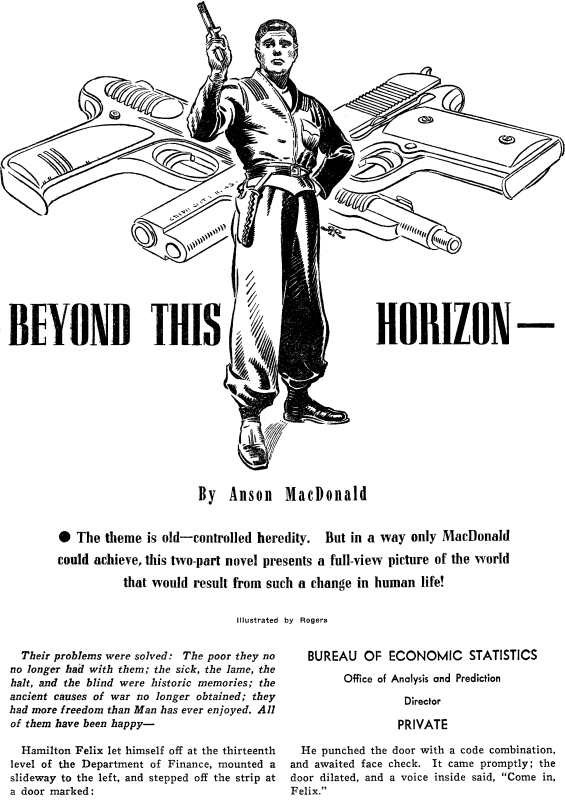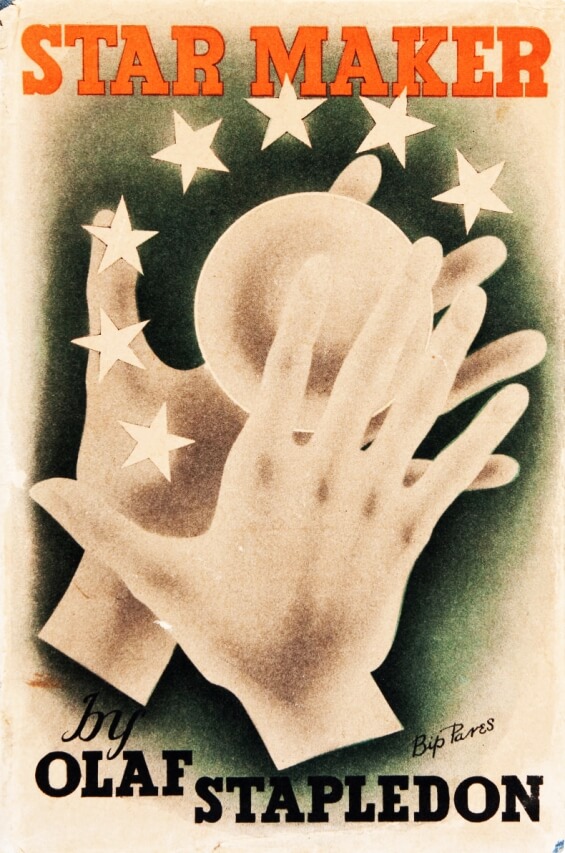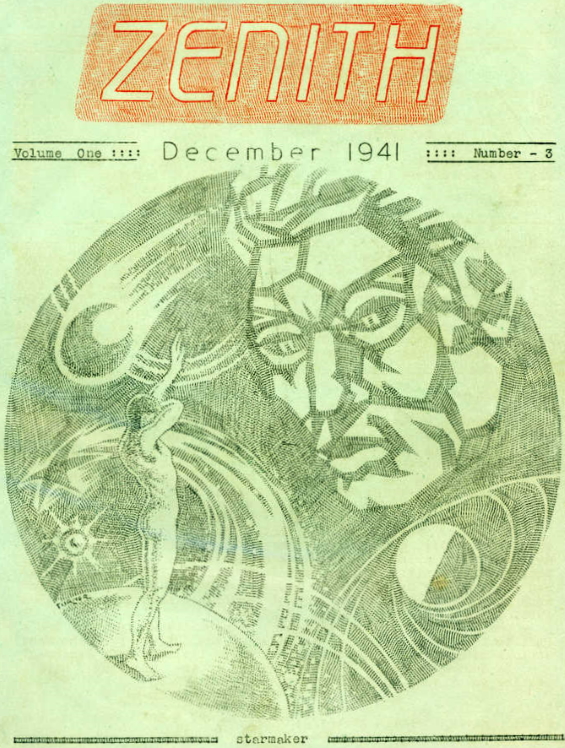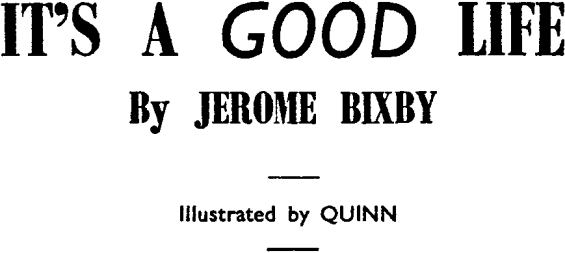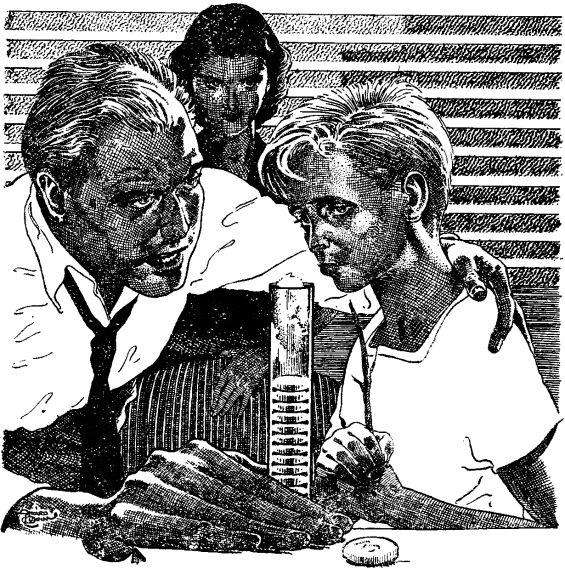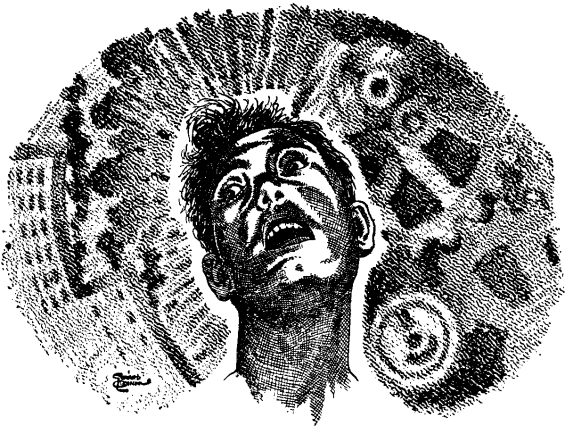 The SFFaudio Podcast #490 – Human Is by Philip K. Dick, read by Julia Morgan (this audiobook comes to us courtesy of Morgan Scorpion). This is a complete and unabridged reading of the story (33 minutes) followed by a discussion of it. Participants in the discussion include Jesse, Paul Weimer, Marissa VU, Evan Lampe, and Julia Morgan
The SFFaudio Podcast #490 – Human Is by Philip K. Dick, read by Julia Morgan (this audiobook comes to us courtesy of Morgan Scorpion). This is a complete and unabridged reading of the story (33 minutes) followed by a discussion of it. Participants in the discussion include Jesse, Paul Weimer, Marissa VU, Evan Lampe, and Julia Morgan
Talked about on today’s show:
Startling Stories, Winter 1954, what is human?, Do Androids Dream Of Electric Sheep?, empathy, Lester is a horrible person, Lester wants to kill human beings, the alien is too good to be true, getting Lester back, a kid and a kitten, the illustration, I know how this story was created, at his typewriter, shut up I’m typing!, PKD is Lester, poking fun at his own obessiveness, the nagging wives, the annoying wives, this time he’s the guy who’s the dick, Evan’s notes, the four stories: Out In The Garden, Beyond The Door, Of Withered Apples, neglected wife and aloof husband, an affair with a non-human entity, what was he going through?, The Father-Thing, the Husband Thing becomes human, what you think of the title, questioning the meaning of the title, “handsome is as handsome does”, don’t judge by the looks, it always applies, you’re looking very handsome, great language, Lester Herrick came back from Rexor 4 a different man, robant, Jill gaped, you’re looking lovely, do I smell a delicious repast warming on the hearth?, he’s always playing a game of whose telling the story, the narrator can change sides, watch out for my tiger!, the tiger did this, it’s just an alley cat, human is as human does, a Devonshire lady, stupid is as stupid does, Forrest Gump (1994), the lurking background sexual motivation missing from the adaptation, Beyond The Door, a child comes into the story, “a friend”, a rival for the wife’s affections, the brother, human beings are more complicated than just sex, underneath all that technology and gender roles, sexual jealousy, Julia doesn’t see it, Marissa doesn’t see it, Paul can see a longing, a longing for a child, Out In The Garden, a kid and a garden, a god or an animal, Leda And The Swan by W.B. Yates, the old college friend, Jesse thinks this really happened, PKD got jealous, you have to make allowances after all he’s a scientist, wife leaving her husband, your still classed as sexually adequate aren’t you?, handing the boy over to the government when they’re old enough, communal spartan living, Progeny, an autistic kid in the family, you think a lot of children, Gus loves to go visit you, I’ve had fun, almost the opposite, this isn’t about sex but he’s waiting it equally, Helen O’Loy by Lester Del Rey is a porn addiction story, when women complain about men watching porn, romance fiction, what these aliens do, the odd diction, an ideal abstraction, books mostly, romantic novels, 19th century Jane Austen, another PKD story, astronauts who died in space and return and are arrested, a poor copy, aliens invading as door-to-door salesman, aliens trying to mimic humans, Impostor, Spencer Olham, he passes her test, this is not a story about empathy, Dick is wrong again (about his own stories), programmed automaton, acting kind, being kind without empathy, not faking, differentiating the real without an internal narrative, Jesse’s snobbyness, reviews of the Human Is episode, she chose her own personal preference to allow the invasion of the Earth, her false testimony, infiltrating Earth, the Rexorian Lester is wonderful, super creepy, she’s got his love, this is exactly how women get into bad relationships, at best it will be like Helen O’Loy, the TV version ups the stakes, the missing child, the substitute child, the little Gussy needing to come over there, how the brother is, he’s distancing himself from his sister, his job as a lawyer, the otter slide, an annuzlement, he’s going to live with them, the jealously flipped over, defensive of the original Lester, you think a lot of children, there’s no question whether he is or isn’t the alien, super-wise advice, yeah he has a big nose but look how good he is with kids, how cold blooded is that?, beautiful on the inside, Centauran parasitic life, merely an opinion, another robot, robants everywhere, a robot who becomes malicious, where’s Gussy’s mom, what does the mom think about that?, what happens to Jill after this?, you can divorce people, Philip K. Dick’s life story, the five wives of PKD, just a bad day?, you’re a monster, too many amphetamines, he makes poisons, he’s just the worst, a scientist who makes toxins, military role, a weird profession, designed to make us hate him, less believable, straight up adaptation, now clear out of here, the reports are stories, his cheeks flushed his eyes sparkled, the most explicit version of the wife as a child, Upon The Dull Earth, Jill’s heart was like lead, sit in the garden, bring your tiger, Vidsender is Skype, nobody speak, he gets a letter from Donald A. Wollheim, off to the shack in the back yard to write a novel, the portrayal of these child wives, the wives of the 1960s,Clans Of The Alphane Moon, Now Wait For Last Year, 1959, Cleo and Anne, a 1950s wife with no child and no responsibilities, finding pleasure and life elsewhere, we know what she wants, she wants a family, the proxy child is available, how I keep the family whole, those toxic little stories you write, it feels like journal entries turned into science fiction, such a sensitive guy, overwhelmed with guilty, February 2, 1953, the 1955 FBI visit, Eye In The Sky, in keeping with, driving lessons, something Paul would say, individuals amongst them are doing good work, not pertinent, Terry Carr, The Ganymede Takeover, you fellas at Ace, I’m embarrassed by this story, they didn’t hand out the best stories, a future season?, radical fixing, maybe, I have not really changed my views, the quality of kindness, rocks and sticks and metal, always talking about empathy, William James pragmatism, what’s on the surface, telling over time, not enough time with new Lester, anything you wish whatever will make you happy, conmen say that, worried about Jill, just run you don’t need another man right now, especially an alien man, her only refuge, lush and green, smells good, compared to where he comes from, they’re out in the garden, Frank is very honest, mushroom sauce and steak stored under the house, the second interview with the brother, I did notice he was getting fatter, the coffee and the rolls and the ice-cream, how Lester and the stove get up to all sorts of things, he’s cheating on his wife with the stove now, that was a sex line, and now he’s romantic, you’re eyes are like virgin pools, the sex scenes in the TV adaptation, Paul liked it, ok, preposterous, due process, a military court, she tricks them with a sixth grade logic puzzle, courtroom fell for it, they set up a straw man to knock down, a good excuse for a softcore porn movie, the sets and the costumes, stupid high heeled shoes, an option for the uniform, not a good adaptation, not a good show, why does that happen?, why is she on the treadmill all the time?, to show she’s not moving with her relationship, sexual liaisons with costumed strangers, lesbianism, the explanation not an excuse, lets invert everything but not the most important thing, why is the director the wife now?, set in 2520, our present cultural values, women should be empowered and have loving husbands, everybody in the military, what’s missing in the story, ever gender is flipped, militaristic, law and order for the rich, flipping the genders of the husband and the wife, the set design, I’d like to have that apartment, a gorgeous closet, a home gym, the Maze, fancy clothying and stabbing each other, am I insane or is this terrible?, adding the big stakes, what you want out of a spouse, missing the heart of the story, if they hadn’t added everything they added, no softcore scenes in The Twilight Zone, how many lesbian episodes, audience expect filler and gender balanced, Black Mirror doesn’t, cheap sex and war, Bryan Cranston’s soulful eyes, uniformly good acting, the start with the shittiest script imaginable, he loves these metaphors, he retains all the memories and yet his emotions are changed, in the story he retains none of the memories, Hugh Jackman as a time traveler in Kate And Lepold (2001), a romance fantasy, Outlander, why did they change the guy’s first name, changes for changes sake, following the slipstream, in Charlie Brooker’s shadow, Ronald D. Moore, getting the most bang for their buck, our turn now girl power, Bryan Cranston as the wife, problematic, swapping everything, switching the emotions, if you’re gonna mess with the structure then change everything, from warm to cold, the story fall apart, the story that Philip K. Dick wrote was so good, ideal visions of themselves, what’s the ideal man supposed to be like?, so many perfect women stories, if you just flip everything the story becomes pointless, that whole sequence in the underground, the missing element from the story is the child, non of the stories in the adaptations (so far) have dealt with children, a Stephen King story written by Philip K. Dick, like It, Robert A. Heinlein, weird kids, the system or the older people are repressing opportunity, impenetrable for adults, Crack In Space is the novel for the millennials, the brown people, Martian Time-Slip, Galactic Pot-Healer, Nick And The Glimmung, autistic boy, adult bullies and jerks, problematic humans, what’s best for the kid, how to raise and educate children, the Jovians are sending board games to earth, War Game, obsessed with children, Isaac Asimov, full of children, they don’t get what he’s about, a pecuniary decision, not a good introduction to Philip K. Dick at all, if this is your introduction to Philip K. Dick you’d think PKD was obsessed with soft-core sex scenes, psychic sex, a man interested in women, borrowing from other stories, resources, empire, the TV adaptation picked out the word “metaphor” and now the aliens are metamorphs, this story is a metaphor for a husband-wife relationship, they won’t even talk about children, you be you, what does that have to do with, Jesse can’t tell what the TV adaptation’s metaphor, The Father-Thing vs The Father Thing, Foster You’re Dead, The Hanging Stranger, all of that stuff is not in the story, top half, irritated by everything they added to it, why not just do this thing and set it in the 1950s future, 1950s weirdness, computers but not in the house, robants that run on punchcards, the aesthetic of the Fallout games, all the TVs are cathode ray, the Philip K. Dick rehtorizer, getting up to all sorts of no-good with the oven, your’e cooking now, I’ve got a bun in the oven, coffee for the rhetorizer, Lester was so indifferent to pleasure he wants his food intravenously, Paul’s re-litigation, he wasn’t bad enough, working harder at making him odious, Major Dad, sirloin steak medium, Counter-Clock World, he has trouble with his pipe, a great comedy piece, it’s funny on the page, a suburban regular girl, perfect alien comedy, perfect comedy, My Favorite Martian, sucking all the humour out of these, Crazy Diamond was supposed to be funny, you can’t have sexy time and comedy?, Sales Pitch was easily a comedy, crapsack earthworld, The Outer Limits, Inconstant Moon by Larry Niven, The Human Operators by Harlan Ellison and A.E. Van Vogt, mean robots, they don’t care about science fiction, military stuff is not even his thing, the material they’re going to use to fix the atmosphere, oil?, being imperialistic, fascistic human government, amping up the sympathy for the Rexorian, the morality of empire, not even sex just dress-up, random strangers, the secretary/assistant, underwritten, the scene that was cut, she’s genetically matched up with him and they have no children, this report on Betelgeuse XI, Fomalhautan fossils, a lawyer for ICE or the Border Patrol, outside of Earth you got to Gitmo, laziness or terrible supervision, shot in black in white in a fallout future 1950s, an episode of The Twilight Zone that never happened, framing devices, make this story live.


Posted by Jesse Willis

